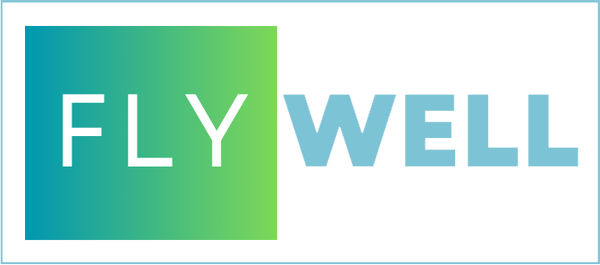Ensuring adequate hydration while traveling is indispensable for maintaining energy and well-being. It's no secret that water is essential for our body's proper functioning, especially during long journeys or explorations in new environments. However, the nuances of staying properly hydrated in various climates and situations can often be overlooked. From the impact of altitude on fluid intake to the challenges of recognizing dehydration symptoms amidst the excitement of discovering new places, a deeper understanding of hydration strategies can make a significant difference in the quality of your adventures.
Key Takeaways
- Monitor urine color for hydration assessment.
- Understand hydration strategies for different altitudes.
- Importance of electrolytes for proper hydration.
- Challenges of recognizing dehydration symptoms while traveling.

Vitamin C for Immunity
Incorporating Vitamin C into your daily hydration routine can significantly boost your immunity and support overall health. Vitamin C is renowned for its immune defense properties, acting as a potent antioxidant that aids in cold prevention and supports a robust immune system. As one of the most popular natural remedies, Vitamin C works to boost immunity by fighting infections and promoting immune health. By ensuring you have an adequate intake of Vitamin C, you provide your body with the necessary support for enhancing immunity and maintaining optimal immune function. Whether through supplements or vitamin-rich foods, prioritizing Vitamin C in your hydration regimen is a practical step towards safeguarding your health and well-being.
Probiotics for Gut Health
To further enhance your overall health and well-being, consider the benefits of incorporating probiotics into your daily routine for improved gut health. Probiotics play a crucial role in maintaining the balance of gut flora, supporting digestive health, and ensuring a healthy microbiome balance. These beneficial bacteria, found in probiotic strains and fermented foods, contribute to the gut-brain connection and promote optimal intestinal health. By consuming probiotic supplements or including probiotic-rich foods in your diet, you can support the diversity of gut microbiota and experience a wide range of probiotic benefits. Prioritizing your gut health through probiotics can lead to improved overall well-being and vitality during your explorations around the world.
Melatonin for Sleep
For individuals seeking to improve their sleep quality and address any disturbances, considering the benefits of melatonin supplementation may offer a natural and effective solution. Melatonin, a hormone that regulates the sleep-wake cycle, can be a helpful aid in promoting restful sleep. Here are some key points to keep in mind:
- Regulates Circadian Rhythm: Melatonin helps regulate your body's internal clock, making it easier to fall asleep at the right time.
- Provides Insomnia Relief: It can be beneficial for individuals struggling with insomnia by promoting relaxation and drowsiness.
- Enhances Bedtime Routine: Incorporating melatonin into your bedtime routine can signal to your body that it's time to wind down and prepare for sleep.
- Improves Sleep Quality: By enhancing your sleep patterns, melatonin can contribute to a more restful and rejuvenating night's rest.
Electrolytes for Hydration
Ensuring adequate intake of electrolytes is essential for maintaining proper hydration levels, especially during periods of physical activity or exposure to high temperatures. Electrolyte balance is crucial for the body to function optimally and avoid dehydration. Replenishing fluids with electrolyte-rich sources such as sports drinks, coconut water, or electrolyte-enhanced water can help restore electrolyte levels and improve hydration. Hydration benefits extend beyond quenching thirst; they include supporting metabolism, circulation, and temperature regulation. To enhance electrolyte intake, consider consuming foods like bananas, nuts, and leafy greens. Hydration strategies involve sipping fluids consistently throughout the day and monitoring urine color to assess hydration levels. Hydration tips also include avoiding excessive caffeine and alcohol consumption. For those needing extra support, electrolyte supplements can be a convenient solution.
Omega-3 for Brain Function
A balanced intake of Omega-3 fatty acids plays a crucial role in supporting optimal brain function. Omega-3, commonly found in fish oil, offers numerous benefits for cognitive function and neurological health. Here are four key advantages of incorporating Omega-3 into your diet:
- DHA Benefits: Docosahexaenoic acid (DHA), a type of Omega-3 fatty acid, is especially beneficial for brain health.
- Memory Enhancement: Omega-3 intake has been linked to improvements in memory and cognitive function.
- Focus Improvement: Regular consumption of Omega-3 has shown to enhance focus and concentration.
- Omega-3 Sources****: Include sources like fatty fish, flaxseeds, chia seeds, and walnuts in your diet to boost cognitive enhancement.
Prioritizing Omega-3 can contribute positively to mental clarity and overall brain function.
B Vitamins for Energy
An essential component for maintaining optimal energy levels and overall well-being, B vitamins are crucial nutrients that play a significant role in supporting various bodily functions. These vitamins are known for their energy-boosting, mood-enhancing, and performance-enhancing properties. By helping the body convert food into fuel, B vitamins contribute to stress relief, focus improvement, and endurance enhancement. Additionally, they play a key role in metabolism boosting, aiding in recovery, enhancing cognitive functions, and supporting immunity. Ensuring an adequate intake of B vitamins through a balanced diet or supplements can help individuals sustain their energy levels, improve their mood, and enhance their overall performance, making them essential for those looking to stay active and energized while exploring the world.
Zinc for Immune Support
To further support your body's overall well-being and enhance its ability to stay active and energized while exploring, it is important to consider the role of Zinc for immune support. Zinc plays a vital role in maintaining a healthy immune system by supporting various immune functions. Here are some key points to understand the importance of Zinc for immune health:
- Zinc absorption: Adequate levels of Zinc are crucial for optimal absorption in the body.
- Immune response: Zinc is essential for a robust immune response to defend against pathogens.
- Zinc benefits: It promotes cell growth and supports the body's defense system.
- Zinc deficiency: Low Zinc levels can compromise immune function, highlighting the need for sufficient Zinc intake.
Magnesium for Relaxation
Exploring the role of magnesium in relaxation reveals its essential contribution to maintaining a calm and balanced state of being. Magnesium is a crucial mineral for stress relief, muscle relaxation, and anxiety reduction. It supports the nervous system, enhancing mood and aiding in sleep. Additionally, magnesium intake can help prevent cramps, promote athletic recovery, and provide headache relief. This mineral plays a vital role in cardiovascular health, ensuring proper heart function and blood pressure regulation. Whether through dietary sources or supplements, incorporating magnesium into your routine can have a profound impact on your overall well-being. Prioritizing magnesium intake is a practical step towards achieving relaxation and supporting various aspects of your health.
Iron for Energy Levels
Understanding the significance of iron in maintaining optimal energy levels is key to supporting overall well-being and vitality during daily activities. Iron plays a crucial role in various bodily functions, including energy production. Here are some essential points to consider when it comes to iron for energy levels:
- Iron Absorption: The body's ability to absorb iron from food sources is influenced by various factors such as vitamin C intake.
- Dietary Sources: Incorporating iron-rich foods like red meat, spinach, lentils, and fortified cereals can help meet daily iron requirements.
- Iron Deficiency: Insufficient iron levels can lead to fatigue, weakness, and decreased energy levels.
- Iron Rich Foods: Consuming a balanced diet with adequate iron-rich foods is essential for maintaining optimal energy levels.
Vitamin D for Bone Health
Optimizing bone health is crucial for overall well-being, and incorporating adequate levels of Vitamin D into your daily routine plays a significant role in supporting strong and healthy bones. Vitamin D, often referred to as the "sunshine vitamin," is essential for bone health as it helps the body absorb calcium and maintain appropriate phosphorus levels. Sunlight exposure, along with consuming dairy products, fortified foods, and dietary supplements, can boost your Vitamin D levels. Pairing Vitamin D intake with weight-bearing exercises can further enhance bone density and aid in osteoporosis prevention. Additionally, Vitamin D works synergistically with vitamin K, offering added benefits to bone health. Ensuring a balanced intake of calcium, along with Vitamin D, is key to promoting optimal bone strength and overall skeletal wellness.
Adaptogens for Stress
Incorporating adaptogens into your daily routine can be a helpful strategy for managing stress more effectively. These herbal remedies are known for their natural solutions in stress relief, anxiety management, and mood regulation. By incorporating calming herbs and adaptogenic plants into your daily regimen, you can take a holistic approach to stress management. Here are four key benefits of adaptogens for stress:
- They help the body adapt to stressors more efficiently.
- Support relaxation techniques and aid in anxiety management.
- Assist in balancing cortisol levels, promoting a sense of calm.
- Have been used in traditional medicine for centuries for their stress-relieving properties.

Digestive Enzymes for Digestion
Exploring further ways to support your well-being, another key aspect to consider is the role of digestive enzymes in aiding optimal digestion and nutrient absorption. Digestive enzymes are essential for gut health as they facilitate the breakdown of food into nutrients that the body can absorb. Enzyme supplements can help improve digestive health by supporting the digestive system in breaking down fats, proteins, and carbohydrates efficiently. By maintaining a healthy balance of gut flora, digestive enzymes contribute to stomach health and alleviate digestive issues such as bloating and indigestion. They play a crucial role in promoting intestinal health and maximizing the benefits of probiotics. Ensuring adequate enzyme levels in the body is vital for overall gut balance and well-being.
Conclusion
In conclusion, remember to stay hydrated while exploring the world by focusing on key nutrients like Vitamin C, probiotics, melatonin, electrolytes, Omega-3, iron, Vitamin D, adaptogens, and digestive enzymes. These essential elements can help boost immunity, gut health, sleep, hydration, brain function, energy levels, bone health, and stress management. By incorporating these nutrients into your daily routine, you can ensure optimal health and well-being on your adventures.

